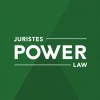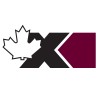Trudeau says decision to contract out ArriveCAN app development was 'illogical'
PM says he's asked Clerk of the Privy Council to investigate procurement practices related to ArriveCAN app
Trudeau said he has asked Canada's top bureaucrat to probe the matter.
Trudeau made the remarks after a report by the Globe and Mail said that GCstrategies subcontracted out $8.3 million of $9 million in federal contracts related to the app's development to six outside companies.
Trudeau was asked why the public service couldn't hire those subcontractors or perform the work itself. "That's exactly the question that I just asked the public service," he said.
"Obviously, this is a practice that seems highly illogical and inefficient and I have made sure that the clerk of the Privy Council is looking into procurement practices to make sure that we are getting value for money and that we are doing things in a smart and logical way," he added.
"Of course, during the pandemic speed was at an essence, helping people quickly was at an essence, but there are principles that we make sure are sound moving forward."
The comments mark the second time in recent weeks the prime minister has deflected blame for contracting decisions to the public service.
Last month, CBC News revealed that Public Services and Procurement Canada (PSPC) awarded Sinclair Technologies a contract worth $549,637 in 2021 to build and maintain a radio frequency (RF) filtering system for the RCMP.
While Sinclair is based in Ontario, its parent company, Norsat International, has been owned by Chinese telecommunications firm Hytera since 2017. The Chinese government owns about 10 per cent of Hytera through an investment fund.
Watch: PM says he has asked the Clerk of the Privy Council to investigate procurement practices:
At the time, Trudeau promised to look into how the contract was awarded and pledged to ensure that "Canada is not signing contracts with the lowest bidder that then turn around and leave us exposed to security flaws."
"We will have some real questions for the independent public service that signed these contracts, and we'll make sure that this is changed going forward," he said. "It's high time that happens."
ArriveCAN no longer mandatory
The Globe and Mail reports the six companies that received the ArrriveCan contracts include Distill Mobile Inc., which was paid $5.1 million, and Macadamian Technologies Inc., which got $1.8 million. The other firms, which received much smaller amounts, are BDO Canada LLP, Optiv Security Inc./Optiv Canada Inc., KPMG LLP and Level Access.
The Canada Border Services Agency says $54 million has been budgeted for the operation and development of the ArriveCAN app up to this coming March.
The app was launched during the pandemic as a communication and screening tool to ensure travellers arriving in Canada complied with pandemic border measures. It later became a way for travellers to show their vaccination status.
The app was made optional in October. Travellers no longer need to use it to report their vaccination information — but many of them can still use a feature of the app that allows them to fill out a Canada Border Services Agency (CBSA) declaration form before arriving at customs.
Few travellers used the advance declaration tool at the airports where it was available during the month of October.
CBSA provided CBC News with the number of air passengers who used the app in Montreal's Trudeau airport, Toronto's Pearson airport and Vancouver's international airport — the only airports where the advance declaration feature was available at the beginning of October. CBC cross-referenced those numbers with the number of international arrivals at those airports for the same month.
Out of the roughly 2.4 million arrivals at those airports, just over 320,000 travellers — roughly 13 per cent — used the app.
Small Ottawa firm subcontracted ArriveCan app to multinationals, documents reveal
The two-person Ottawa-area staffing company that has received millions of dollars in federal commissions on IT projects subcontracted its work on the ArriveCan app to six other companies, including multinationals such as BDO and KPMG, new documents reveal.
They also show the pay rates that GCstrategies billed the government, which are often in the range of $1,000 to $1,500 per day, per worker. The company has said it keeps a commission of between 15 and 30 per cent.
For months, neither the company nor the Canada Border Services Agency (CBSA) that led the project would reveal the identity of the subcontractors who worked on the ArriveCan app, saying it is confidential third-party information.
MPs studying the issue – including both Liberal and opposition members – told The Globe the new information raises important questions as to why the government turned to a two-person company that charges significant commissions rather than dealing with the larger companies directly or performing the work in-house.
“It’s an atrocious abuse of public dollars,” said NDP MP Matthew Green, who described the arrangement as disrespectful to the public service. “Here we are shovelling money out the back door to people who are running businesses out of their basements. It is scary.”
The Globe and Mail first reported in October that federal spending on the app is on track to exceed $54-million this fiscal year and that the small company that received the most federal work on the app – GCstrategies – relies on a network of subcontractors to deliver on its federal contracts.
The ArriveCan app was initially created in early 2020 as a way for travellers to upload mandatory health information related to COVID-19 to present when crossing the border. The app is no longer mandatory as of Sept. 30, but it continues as a voluntary option.
The CBSA has said the cost of the app began as an $80,000 expense but the bill for the app and its maintenance grew to $54-million, from more than 70 updates to keep up with changing public health guidelines.
The Globe reports on ArriveCan prompted an investigation by the House of Commons committee on government operations, which ordered the company and federal departments to hand over related documents such as contracts. The responses have been arriving in waves and in many cases have been heavily redacted.
Opinion: ArriveCan contracting wasn’t that bad. It was worse
Previous releases of government records included pages of invoices submitted by GCstrategies that left committee members with the impression that the company had put together a team of independent IT contractors to deliver on its ArriveCan commitments.
However, the new documents provided to the committee by the company shed light in terms of where the individual IT workers came from and how much GCstrategies billed the government for their work.
The new documents include written agreements between GCstrategies and six other companies to perform the ArriveCan work. They include BDO Canada LLP; Optiv Security Inc./Optiv Canada Inc.; KPMG LLP; Macadamian Technologies Inc.; Level Access and Distill Mobile Inc.
| Subcontractor | Total amount paid from June 2020 to July 2022 |
| Distill Mobile Inc. | 5.09 |
| Macadamian Technologies Inc. | 1.78 |
| Level Access | 0.50 |
| KPMG LLP | 0.40 |
| BDO Canada LLP | 0.32 |
| Optiv Security Inc./Optiv Canada. Inc. | 0.21 |
GCstrategies payments to subcontractors for work related to ArriveCan
One document describes $8.3-million in payments to the six subcontractor companies from GCstrategies covering the period of June, 2022, to July, 2022. However the CBSA said that is a typo and should read June, 2020, to July, 2022.
The chart says Distill Mobile Inc. received $5.1-million of that amount, followed by $1.8-million for Macadamian Technologies Inc. Payments to the four other companies were all under $1-million.
Distill Mobile describes itself on its website as an Ottawa-based technology company founded in 2011.
“Need to create an app?” its website asks. “Or perhaps you’ve got a project that needs some senior development expertise to take it to the next level. Whatever it is you need, we can help.”
Four of the six listed subcontractors did not provide a statement in response to The Globe’s questions. A spokesperson for KPMG responded to say the company can confirm it was contracted by GCstrategies. The work was performed by KPMG employees and one independent consultant, the company said. BDO said it cannot discuss client affairs with third parties.
The Distill Mobile contract is dated Dec. 8, 2019, and says the company will work on “multiple mobile applications.” The CBSA has previously said existing contract work with GCstrategies was shifted to include ArriveCan at the onset of the pandemic.
Reached by phone on Friday, Distill Mobile founder Tom Murphy said he was not interested in discussing the matter.
The contract letter between KPMG and GCstrategies’ Kristian Firth is dated Oct. 8, 2021, and is described as “private and confidential.” It says KPMG will provide a security assessment and privacy safeguards.
In a statement to The Globe, CBSA spokeswoman Rebecca Purdy said the agency was not aware that all six companies were involved as subcontractors and said the agency is reviewing its contracting policies.
The statement said the agency was operating from “an emergency posture” and it was unclear how long the additional contract workers would be needed to maintain the app and its many updates.
“The CBSA did not know which companies GCstrategies used to get the workers – the agency’s main focus at the time was to get the people needed to support the app. The CBSA acknowledges this raises questions relating to the business model. These questions are forming part of our own after action review.”
Ms. Purdy said the contract with GCstrategies did not require the company to disclose the identity of any companies that were hired as subcontractors.
GCstrategies’ contracts with CBSA committed the company to using individuals with approved federal security clearance, which is managed by another department, Public Services and Procurement Canada.
Like previous rounds of documents filed with the committee, the records from GCstrategies continue to redact the identities of the individual workers on the project.
The committee called the two GCStrategies partners – Darren Anthony and Mr. Firth – to testify in October after The Globe and Mail’s reporting.
Mr. Firth told MPs they are the company’s only employees and they both work from home. The company does not have separate office space.
They described themselves as an IT staffing firm and said neither of them perform IT work themselves. Further, they said they have received about $4.5-million a year, or about $9-million as of March 31, 2022, to work on the ArriveCan project.
Mr. Firth also said the company has invoiced a total of $44-million in federal contract work with more than 20 departments over the past two years. They said they charge a commission of between 15 and 30 per cent of contract values for their services, meaning they have been paid millions of dollars in recent years to hire temporary workers for federal departments.
In an e-mailed statement Friday, Mr. Firth said he and his company have always been clear about their confidentiality obligations.
“At all times before, during and after my testimony before the committee we were truthful, open and honest,” he said. “After my testimony, GCstrategies was ordered by the committee to produce all documentation that we possessed related to the committee’s work, under threat of contempt of Parliament proceedings if we failed to deliver everything. We did so only after receiving assurances from the committee that the materials we delivered were to be treated confidentially and redacted to protect personal information. We continue to do our best to comply with all of our legal obligations.”
Mr. Firth said the decision to use independent subcontractors, another company or a mix of the two depends on the needs of each client.
Liberal MP Anthony Housefather had previously defended redactions related to subcontractors because he said they appeared to be individual IT workers acting as temporary employees of GCstrategies. He is a committee member and the parliamentary secretary to Public Services and Procurement Minister Helena Jaczek.
In an interview, he said the fact that GCstrategies subcontracted the work to other companies, including multinationals, raises questions.
“I didn’t know that they had contracted with five or six entities to supply individuals. But it’s all the more reason, I believe, for us to seriously look at the question of whether or not we need this type of company as an intermediary. And shouldn’t there be human resources specialists in the Government of Canada that go out and find personnel?” he said.
Opposition MPs said the new information raises more questions as to why federal departments are using GCstrategies.
Conservative MP Michael Barrett said in an interview that the government is essentially using GCstrategies as a “shield” to protect the identities of the companies receiving tax dollars and to avoid taking responsibility for the problems with the app.
“It’s a bit beyond belief that the government would hire a two-person firm and then have no interest or detail on who was doing any of the subcontracting work, particularly when you talk about the sensitivity of the information that was going to be handled by this app,” he said. “It’s an attempt by the government to mitigate or minimize their accountability and responsibility for the failures of the ArriveCan app, and for the ballooning costs.”
Mr. Green, the NDP MP, said if companies are getting federal work as subcontractors, that information is not normally disclosed, meaning the public and Parliament won’t have accurate full tallies of how much each company is receiving in federal contracts.
“It begs the question: Where else are these big multinationals being involved in procurement under the guise of subcontractors?” he asked. “I think it requires a full review. And I think it also begs the question around the information that we receive from the government. Why does the government continue, in the access to information process, to obscure, block and redact information that ought to be made publicly available?”
In addition to its study of ArriveCan spending, the government operations committee is also investigating the growth of federal spending on outsourcing and the increasing use of the global consulting firm McKinsey & Company.
Small Ottawa firm subcontracted ArriveCan app to multinationals, documents revea
Ottawa undermined Canadians' language rights with ArriveCAN app, language commissioner says
Traveller suing government over bug that prevented app users from choosing language
In a report obtained by Radio-Canada that has yet to be made public, the Office of the Commissioner of Official Languages said Ottawa undermined the language rights of Canadians.
The case is now being heard in Federal Court, where the government will have to explain its management of the application. Launched in April 2020, ArriveCAN was used to record proof of vaccination against COVID-19 for all travellers wishing to enter or return to Canada.
The complainant in this case, Darius Bossé, claimed Ottawa should not have mandated the use of the application knowing the problems associated with the display language. He wanted to return to Canada from the United States in the summer of 2021 and used an English version of the application that did not allow him to switch to French.
"When I am required to make personal statements about my health and location, it is absolutely essential to me that communication with the Canadian government takes place in the official language of my choice," Bossé said.
Unilingual application
The application's language issues began as early as its launch in 2020, according to documents filed by Ottawa in Federal Court.
At that time, the iPhone version allowed travellers to choose a display language, but that feature was "defective" because it did not consistently respect the user's chosen language, according to a federal government affidavit.
In addition, language preference was not always taken into account by screen readers, which are essential for users with special needs.
The government admitted to the court that it decided to "remove the language feature" in December 2020.
Users were then forced to use a version of the app based on their cell phone's operating language, with no clear guidelines for changing it as needed.
It wasn't until August 2021 — after Bossé's complaint — that the government offered more precise explanations to users who wanted to communicate with Ottawa in the official language of their choice.
And it wasn't until November 2021 that the government released an application for iPhones that allowed users to switch languages after downloading, according to the Office of the Commissioner of Official Languages.
The federal government filed the English version of its affidavits with the Federal Court on Sept. 26. The French versions were filed on Dec. 1.
 Lawyer
Darius Bossé, who is the claimant in this case, says he should have
been able to easily use either official language when he was
communicating with the federal government information about his health
and location. (Simon Lasalle/Radio-Canada)
Lawyer
Darius Bossé, who is the claimant in this case, says he should have
been able to easily use either official language when he was
communicating with the federal government information about his health
and location. (Simon Lasalle/Radio-Canada)
Frustrated user
While travelling in the United States in 2021, Bossé tried to obtain the French version of the ArriveCAN application without success.
Having access only to the English version of the application on his cell phone, he tried to indicate on his user profile that French was his preferred language for communicating with the federal government.
Despite this, he had to continue using the English version of the application during his 14-day mandatory quarantine period. According to him, the choice of language for the operation of a cellphone is "personal" and should not affect his language rights.
After filing a complaint, Bossé won his case before the Office of the Commissioner of Official Languages in the spring of 2022.
In its report, the Office of the Commissioner of Official Languages noted that the Public Health Agency of Canada "was aware" of the difficulties in operating the application in the user's language of choice on iPhones.
The report adds that the agency "did not inform the public [...] either of this fact or how to proceed to access the app in their preferred official language."
In June 2022, Bossé turned to Federal Court to try to prove that the agency had violated his language rights under the Canadian Charter of Rights and Freedoms and the Official Languages Act. He is seeking damages of $22,500.
"The Constitution states that people have the right to be served by the federal government in the official language of their choice. For me, it is important that the Federal Court formally recognize this," he explains.
In an affidavit filed in Federal Court last September, the head of the ArriveCAN app, Chulaka Ailapperuma, confirmed that he faced numerous technical challenges related to the display language on Apple platforms in 2020 and 2021.
Possible solution
An expert hired by Bossé responded in a separate affidavit that the government should have been able to allow ArriveCAN users to change the language of the display within the application itself.
Gregory Cerallo, founder of Sidekick Interactive Inc. points to examples of bilingual applications created by Environment Canada, the SAQ or Hydro-Québec, all of which offer this feature.
"In my experience, inserting or maintaining a custom language feature in a mobile application poses an additional, but not insurmountable, challenge," Cerallo says.
He calculates that developing this feature would have cost an extra $72,000.
In all, Cerallo estimates that developing an application like ArriveCAN should not have cost more than $2 million.
Instead, the federal government spent tens of millions in connection with the creation and implementation of the application.
with files from Matthew Lapierre

Originally from New Brunswick, Darius now lives in Ottawa where his passion for public law and politics has flourished. Darius focuses his practice on constitutional law, administrative law, and parliamentary and government affairs.
Complementing his focused public law practice, Darius has gained extensive experience working on civil litigation matters more broadly, including on appellate and judicial review matters. He has represented his clients’ interests before the Supreme Court of Canada, the Federal Court and Federal Court of Appeal, the New Brunswick Court of Appeal, and the Ontario Superior Court.
With experience at the crossroads of law and policy, he guides his clients through legislative and policy development processes, including by proposing legislative amendments and preparing clients for appearances before parliamentary committees. He also has experience interpreting, negotiating, and implementing intergovernmental agreements.
Darius began his legal career clerking for Justice Henry S. Brown of the Federal Court and Justice Suzanne Côté of the Supreme Court of Canada. As an articling student and then associate at Power Law, Darius worked on the largest and most complex education rights trial since the adoption of the Canadian Charter of Rights and Freedoms.
Darius’ work experience before and during law school greatly informs his practice. For example, while studying law, Darius worked as a Parliamentary Assistant to a member of the House of Commons, and interned at the Office of the Law Clerk and Parliamentary Counsel for the Senate of Canada.
Darius is the author of several academic articles that explore a variety of issues in the areas of constitutional law, administrative law, minority law, statutory interpretation law, and human rights.
Darius practices in English and French.
I got a call back from some lady at 613 702 5560 who did not idenitfy herself
I called back and left a message for both parties and heard nothing since
130 Albert Street
Suite 1103
Ottawa, Ontario
K1P 5G4
Telephone: (613) 702-5576
FAX: (613) 702-5560
Email: mpower@juristespower.ca
Profile
ndenault@powerlaw.ca
613-704-1721
Mark has substantial experience advocating on behalf of clients; he often succeeds in helping his clients to avoid the judicial process altogether. Mark has nevertheless acquired hundreds of days of experience in courts of first instance, having appeared before the courts of almost all provinces and territories and the Federal courts. He has also gained considerable experience in matters concerning the interpretation and negotiation of intergovernmental agreements.
Mark has acquired extensive experience before the Supreme Court of Canada. He is counsel of record in many dozens of proceedings in the Supreme Court of Canada, and has provided advice to parties in many other cases. He is very well versed in preparing applications for leave to appeal and applications for leave to intervene, as well as in preparing written submissions and bringing motions.
Before Power Law, Mark worked for more than a decade in the Toronto and Ottawa offices of a national firm, including as a partner. He began his career as a law clerk at the Supreme Court.
For four and a half years, Mark was a tenure track assistant professor of law in the University of Ottawa Faculty of Law’s Common Law Section. He is now a sessional professor at this University.
Mark has published a large number of articles in peer-reviewed academic journals. Some of his publications have been cited by Canadian courts, including the Supreme Court of Canada. His publications address a wide array of public and private law questions, notably regarding constitutional, administrative, and education law, and language rights.
Passionate, involved, and engaging, Mark prides himself on providing clarity to things that otherwise are not clear. He is regularly invited to speak before all types of audiences in all parts of the country, including radio and television interviews, to comment on various legal questions and high-profile cases.
Mark practices in English and French.
Law Societies
- Ontario
- New Brunswick
- British Columbia
- Newfoundland and Labrador
- Alberta
Education
- LL.B. (University of Ottawa - 2002)
- M.A. (Carleton University - 2002)
- BEc (University of Ottawa - 1998)

Darius Bossé
Lawyer at Power Law
Ottawa, Ontario, Canada
1K followers
500+ connections
Experience
-
Lawyer
Power Law
Law Clerk to the Honourable Justice Suzanne Côté
Supreme Court of Canada
-
Law Clerk to the Honourable Justice Henry S. Brown
Federal Court
-
Student-at-Law
Power Law
-
Student-at-Law
Heenan Blaikie LLP
-
Research Assistant
University of Ottawa
-
Summer Intern
Heenan Blaikie LLP
-
Administrative and Parliamentary Assistant
Parliament of Canada
-
Université de Moncton
1 year 9 months
-
Research Assistant
-
Teacher Assistant
-
-
Youth Community Officer
Elections Canada
Education
University of Ottawa, Faculty of Law
J.D.Law
Publications
-
A Review of From Treaty Peoples to Treaty Nation
-
Acadianité et droits de la personne : autodétermination identitaire, membriété et droit des minorités nationales
-
Colloque sur le statut du français dans la réglementation de la profession juridique
-
Constitutional Litigation, the Adversarial System and some of its Adverse Effects
-
La répartition géographique des dépenses de capital du Gouvernement du Nouveau-Brunswick, 1994-2008
-
La « communauté linguistique française » du Nouveau-Brunswick dans l’article 16.1 de la Charte canadienne des droits et libertés. Entre politiques de reconnaissance et reconnaissance politique d’une communauté linguistique au Canada
-
Le droit, un rempart à la fragilité minoritaire?
-
Le statut du français au sein de la profession juridique en Ontario : Réflexions sur le droit d’exiger une audience devant des membres de panel d’audition qui s’expriment en français au Comité d’audition du Barreau du Haut-Canada
-
Le statut du français au sein de l’appareil judiciaire ontarien : une révolution tranquille inachevée
-
L’obligation de faire adopter la version française des textes constitutionnels canadiens
-
Recension – A Great and Noble Scheme: The Tragic Story of the Expulsion of the French Acadians from Their American Homeland
-
Un entretien avec le professeur émérite Joseph E. Roach
-
Un entretien avec l’honorable sénateur Serge Joyal
-
Une tentative de clarification de la présomption de respect des valeurs de la Charte canadienne des droits et libertés
Constitutional Litigation, the Adversarial System and Some of Its Adverse Effects
17:2 Review of Constitutional Studies 1, 2012
40 Pages Posted: 6 Apr 2016
Date Written: 2012
Abstract
The authors of this article identify and analyze a specific and spectacular failure of the adversarial system. Between 1988 and 1990, in the Mercure and Paquette cases, the Supreme Court of Canada held that Saskatchewan and Alberta were obliged to enact and publish their laws in both French and English, but that they could also unilaterally abrogate this obligation if they so decided. They did. Twenty years later, in the Caron & Boutet case, the Provincial Court of Alberta disrupted the state of the law by holding that judicial and legislative bilingualism was and had always been constitutionally protected in Alberta, and thus in Saskatchewan as well.
In this article, the authors try to elucidate this puzzling contradiction. They identify some of the consequences that result from subjecting important public law questions to an unbridled adversarial system. They also highlight the dangers of determining major constitutional questions on the basis of historical evidence adduced by parties with unequal means and resources. Caron & Boutet serves as a case study to that end, offering a sobering illustration of the pitfalls of the adversarial system in constitutional cases that turn on the proper understanding of historical events. The first section of this article sets the stage by presenting and analyzing the most important aspects of the Mercure, Paquette and Caron & Boutet cases. The second section underlines some of the inefficacies of the adversarial system in Canada from an evidentiary perspective, and notes the near impossibility, for disadvantaged parties, to present an adequate and complete evidence record. The authors conclude by reiterating the extent to which trial judges are the gatekeepers of access to justice and by underscoring the important function of funding mechanisms such as advanced cost orders and government initiatives, such as the Language Rights Support Program.
Keywords: Adversarial System, Constitutional litigation, Language rights, Official bilingualism, Western Canada, historical evidence, Royal Proclamation of 1869
Suggested Citation:
23 References
- The Struggle for Responsible Government in the North-West Territories, volume 1870Posted: 1956
- Official Bilingualism in AlbertaPosted: 1937
The Charter Official Language Provisions: The Implication of Entrenched Bilingualism" in Walter S Tarnopolsky & G6rard A Beaudoin, 7be Canadian Charter of Rights and Freedoms: Commentary (Toronto: Carswell, 1982) 163. See generally
Rv Paquette, volume 14Posted: 1987- DLR (4th) 47 (CA) (Facturn of the Appellant) (on file with the authors)
- online: The Encyclopedia of Saskatchewan, p. 1882 - 1935CrossrefPosted: 2007
Luc Paquette, did not ask the Court to consider the broader historical and cultural significance of the events leading up to the annexation of Rupert's Land and the North-West Territories to Canada as she had done before the Court of Appeal of Alberta
See also Michel Bock, Quand la nation debordair lesfrontiares: "les minorits"frangaises dans la pensde de Lionel Groulx, p. 47 - 64Posted: 2004- 2 SCR 713, 35 DLR (4th) 1, 30 CCC (3d) 385 at 803
- , volume 173
At the end of the day what we are left with is the Tribunal's own statement that it had 'vetted' 10,000 pages of material in relation to the motion to dismiss, when the record on the motion before it was only some 2,000 pages in length. There is, moreover, no suggestion by any ofthe parties that the authorities filed in relation to the motion came anywhere close to accounting for the 8,000 page difference
First Nations Child and Family Caring Society v Canada, volume 445Posted: 2012Judicial Notice: How Much is Too Much?" in The Law Society of Upper Canada
The Law ofEvidencePosted: 2003The Limits of Judicial Notice
Law Q RevPosted: 1958- La notion traditionnelle de connaissance d'office des faits, p. 31 - 87Posted: 1997
- , p. 113 - 145
- , p. 546 - 593Crossref
- La connaissance d'office des faits sociaux en contexte constitutionnel, volume 315, p. 394 - 95Posted: 1997
- Proof of Facts in Constitutional Cases, p. 26 - 386Posted: 1976
- , volume 13, p. 84 - 86
- Social Facts, Court Delay and the Charter" in Frederick L Morton, Law, Politics and the Judicial Process in CanadaCrossrefPosted: 1992










No comments:
Post a Comment